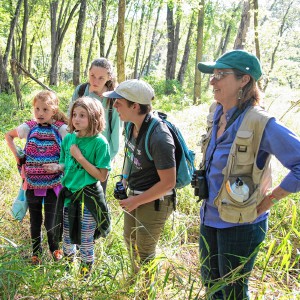Famed Editor Maxwell Perkins Loved Windsor Best
| Published: 06-10-2016 10:02 PM |
After a long day at the office, some people lose themselves in a good book. The late editor Maxwell Perkins — the man who discovered such talents as F. Scott Fitzgerald, Ernest Hemingway and Thomas Wolfe — had to find solace elsewhere.
In his case, the town of Windsor.
Working nearly four decades at New York publishing powerhouse Charles Scribner’s Sons, Perkins labored on such groundbreaking novels as Fitzgerald’s The Great Gatsby (published in 1925), Hemingway’s The Sun Also Rises (1926) and Wolfe’s Look Homeward, Angel (1929), then boarded a train to the small Green Mountain town he escaped to almost every summer.
“No one could have known Max who did not understand what Windsor, or Vermont in general, meant for him,” wrote friend and Pulitzer Prize-winning historian Van Wyck Brooks, who believed the area kept Perkins at heart “so direct, so uninfluenced by prejudice, so unclouded by secondary feelings, so immediate, so fresh.”
A new film, Genius, starring Colin Firth as Perkins, Laura Linney as his wife, Jude Law as Wolfe and Nicole Kidman as Wolfe’s lover, doesn’t picture Perkins’ Windsor home — now Main Street’s Snapdragon Inn.
But audiences will learn what led him to return to what was “for Max Perkins the most glorious place on earth,” writes A. Scott Berg in his National Book Award-winning biography Max Perkins: Editor of Genius, even as he made publishing history in his native Manhattan.
Born in 1884, Maxwell Evarts Perkins graduated from Harvard University in 1907 and worked as a reporter for The New York Times before moving on to Scribner’s in 1910.
Article continues after...
Yesterday's Most Read Articles
 Crowd turns out to honor late Ascutney Fire Chief Darrin Spaulding
Crowd turns out to honor late Ascutney Fire Chief Darrin Spaulding
 Former principal of South Royalton School released from prison
Former principal of South Royalton School released from prison
 Pick a sport and Pete DePalo’s has probably officiated it over the past 40-plus years
Pick a sport and Pete DePalo’s has probably officiated it over the past 40-plus years
 Upper Valley residents among advocates for NH aid-in-dying bill
Upper Valley residents among advocates for NH aid-in-dying bill
 NH man convicted of killing daughter, 5, ordered to be at sentencing after skipping trial
NH man convicted of killing daughter, 5, ordered to be at sentencing after skipping trial
“Perkins was unlikely for his profession,” Berg writes. “He was a terrible speller, his punctuation was idiosyncratic, and when it came to reading, he was by his own admission ‘slow as an ox.’ ”
The young editor also took risks, unlike older colleagues who favored the company’s classic “novel of manners” collections of Henry James and Edith Wharton. Perkins raised eyebrows, for example, when he expressed interest in a manuscript submitted by a 21-year-old Army lieutenant.
“Ninety percent of the stories that appear are derived from life through the rarefying medium of literature,” he wrote the aspiring author. “Yours are direct from life it seems to me. This is true also of the language and style; it is that of the day.”
The writer was Fitzgerald, and Perkins had to fight his superiors to publish him. Though he rejected Fitzgerald’s first manuscript, Perkins encouraged him to rework it. Scribner’s accepted This Side of Paradise in 1919.
Fitzgerald would later introduce Perkins to a writer with similar aspirations — Hemingway.
“Continuing with each new writer he took on, he slowly altered the traditional notion of the editor’s role,” Berg writes. “He sought out authors who were not just ‘safe,’ conventional in style and bland in content, but who spoke in a new voice about the new values of the postwar world. In this way, as an editor he did more than reflect the standards of his age; he consciously influenced and changed them by the new talents he published.”
Perkins worked with a few traditional types, helping President Calvin Coolidge edit a collection of speeches and commissioning illustrations from artist friend Maxfield Parrish, who lived across the Connecticut River in Plainfield.
As for people who asked, “Why don’t you write yourself?” he replied: “Because I’m an editor.”
Genius focuses on the laconic, introverted Perkins’ relationship with the loud, extroverted Wolfe, who submitted a 1,114-page, 333,000-word manuscript, only to wrestle with his editor seemingly day and night for a year as they shaped it into Look Homeward, Angel.
“The first time I heard of Thomas Wolfe,” Perkins went on to write, “I had a sense of foreboding. I who loved the man say this. Every good thing that comes is accompanied by trouble.”
Enter Windsor, where the editor’s maternal grandfather created a family compound of houses in the early 1800s and cultivated the surrounding acreage into woods called “Paradise.”
“Windsor was the most loved place by my grandfather,” says Jane Harding Gurney of Weathersfield, whose mother, Bertha Perkins Frothingham, was the first of the editor’s five daughters. “I always loved Windsor because my mother loved it, too. She would tell wonderful stories.”
Berg shares many in his book. The editor, for example, so appreciated hiking up Mount Ascutney with his children, he would have named one of them after the local landmark had his wife not objected.
“Perkins’s greatest pleasure in Windsor was in losing himself on a long solitary stroll,” Berg writes. “A ‘real walk’ he used to call it. Alone, he would stride across the same ground his ancestors had before him.”
“Perkins joined his vacationing family in Windsor as often as he could,” Berg continues. “He insisted that his dreams were more vivid and that he slept more soundly in Windsor than anywhere else. He always returned from Paradise rejuvenated, ready to face the accumulated papers on his untidy desk.”
Ruth King Porter, a current resident of Calais, Vt., was too young to glean many personal memories of her grandfather. But Porter, the author of two novels, learned much about him and his Windsor connection editing her aunt Bert’s book, Father to Daughter: The Family Letters of Maxwell Perkins.
“What I noticed is he treated his daughters the same way he treated his authors — very gently,” she says today. “His editor letters are really important to me, too. That’s how I learned how to write.”
Gurney, for her part, remembers family Sunday dinners.
“I loved to listen to the grown-ups talk about politics and authors and the book my grandfather was editing at the time — he would be reading manuscripts that would be all over the living room floor. The conversations would get quite argumentative, but everyone respected everyone else. He was acclaimed, but he was just Grandpa to me.”
Perkins had hardly exhaled after finishing Wolfe’s Look Homeward, Angel when the stock market crashed in 1929, leading to the Great Depression. The book business took a hit — although not as big a blow as Windsor suffered in what historians call the “Great New England Hurricane of 1938” or as the nation felt with the start of World War II.
The editor had told such friends as Alexander Woollcott — the theater critic who inspired the title role of The Man Who Came to Dinner and who had a summer house on Vermont’s Lake Bomoseen — that he wanted to retire to Vermont. But as his world and well-being deteriorated, thoughts of his happy Windsor past only compounded his present sadness. “I had always meant to end up there,” he wrote Woollcott, “but I can’t do it.”
Perkins died in 1947. His family retained his Green Mountain hideaway until a decade ago. Several of his grandchildren and great-grandchildren will attend the movie’s Hollywood premiere, having read early mixed reviews summed up by the BBC: “It is closer in spirit to the orderly and sensible Perkins than the wild and adventurous Wolfe.”
Back in Vermont, other relatives aren’t sure when the film will reach the state — or whether they’ll be satisfied when it does.
“Didn’t they make a movie about Steve Jobs and his daughter said, ‘That’s not the guy I knew’?” Porter says. “If it’s someone in your family, it’s not going to be quite right.”
Especially when it’s competing with so many fond memories.
Kevin O’Connor is a Brattlebro, Vt., writer and correspondent for VTDigger.org. He can be reached at kevinoconnorvt@gmail.com.

 JAG Productions announces closure, citing ‘crisis facing the arts’
JAG Productions announces closure, citing ‘crisis facing the arts’ How a hurricane and a cardinal launched a UVM professor on a new career path
How a hurricane and a cardinal launched a UVM professor on a new career path Out & About: Vermont Center for Ecostudies continues Backyard Tick Project
Out & About: Vermont Center for Ecostudies continues Backyard Tick Project Art Notes: After losing primary venues, JAG Productions persists
Art Notes: After losing primary venues, JAG Productions persists 
